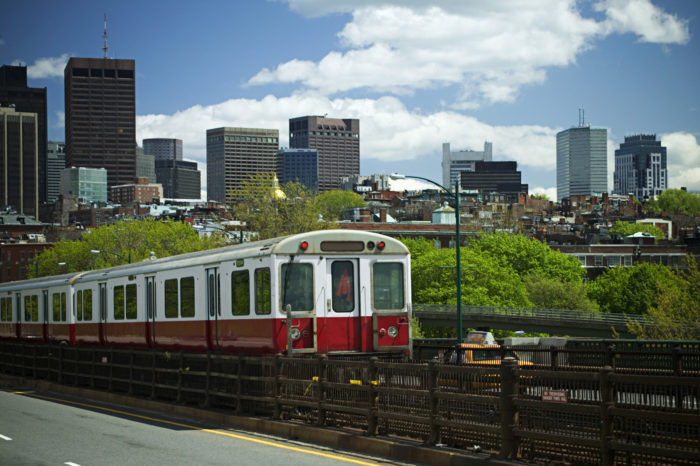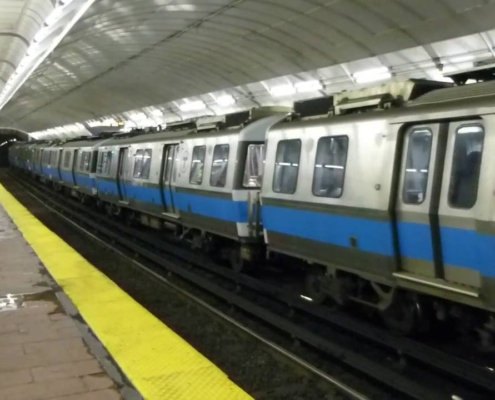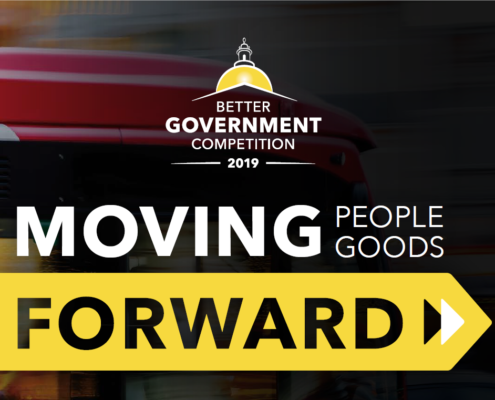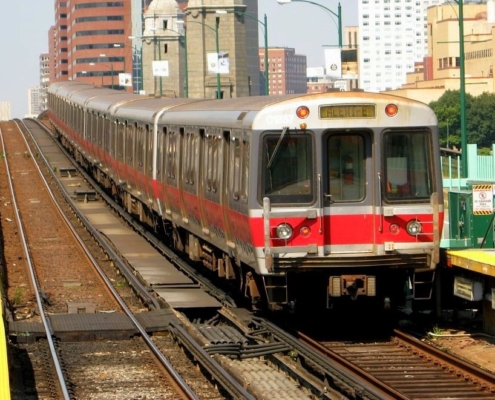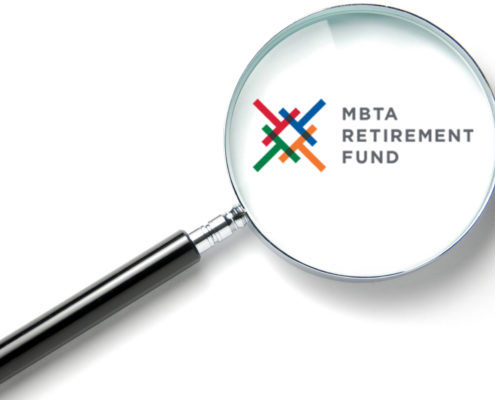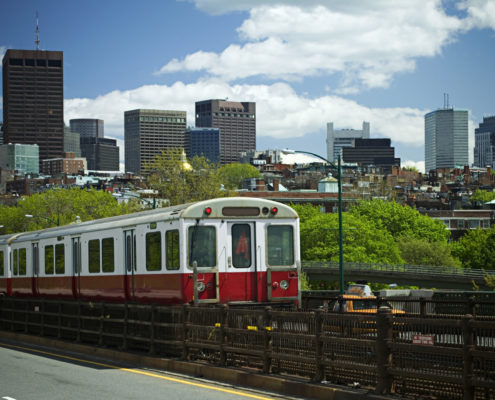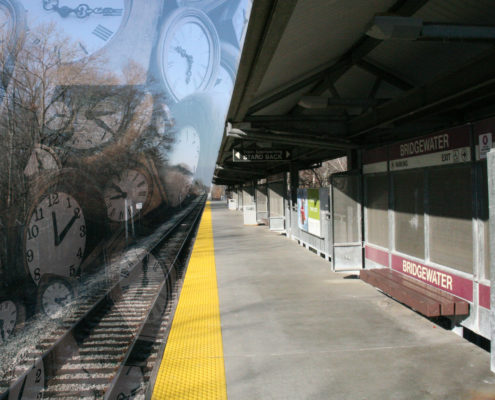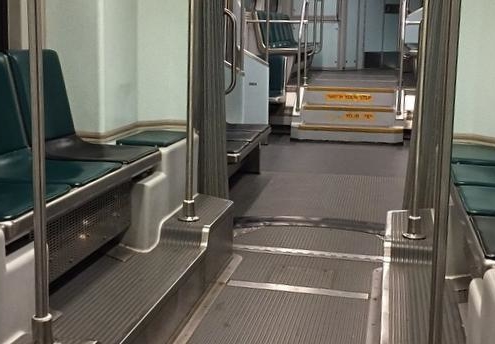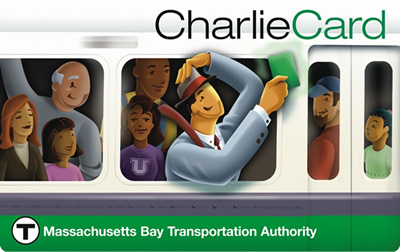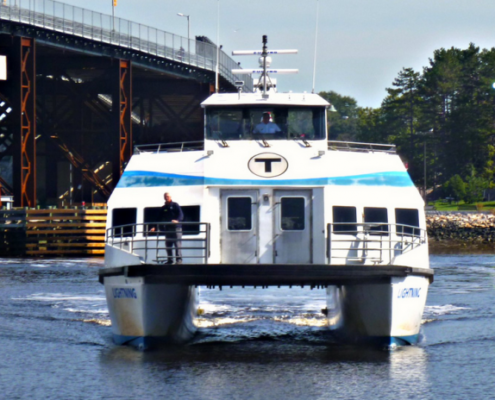Pioneer Institute Public Statement on the MBTA’s Proposal to Increase Fares by 6.3 Percent
While Pioneer Institute opposed the 2016 MBTA fare increases, the Institute believes that the T has earned an increase in fares of 6.3 percent, provided it is committed to introduce differential pricing, address chronic fare non-collection, fix the T’s faltering pension system, and focus investments on key service upgrades. These commitments would modernize fare-setting and mitigate the negative impact of fare increases, ensure that the additional fare revenues are actually going to service improvements, and lay the groundwork for greater fare revenue generation through increased ridership.
In opposing the 2016 fare increase of 9.3 percent, we noted:
“Fare increases should be linked to demonstrable service improvements. The customer must also come first when it comes to fare increases. The T cannot ask riders to pay more unless it offers better, more reliable service in return.”
The MBTA is certainly nowhere near where it needs to be, but there have been modest improvements in service. Moreover, the MBTA invested over $1 billion in maintenance and upgrades in 2018, more than double the amount spent in 2014 before the notorious 2015 “Snowmageddon,” and the T has committed to spending more than $1.5 billion annually over the next five years.
The Institute’s expression of support for the 2019 fare increase proposal is contingent on four commitments:
1. The MBTA must make price differentiation a core element of its fare increase proposal. Already in the T’s proposal is the hold-harmless provision for riders paying the cash fare on buses and users of special discounted fare programs. But the MBTA needs to make a commitment to integrating differential pricing into all of its services, from transit to parking. At a minimum, that means factoring into all fare proposals: the length of a trip, service demand and impacts on roadway congestion, income level, and the needs of riders making multiple trips or transfers.
In the immediate term, Pioneer believes three steps should be integrated into the 2019 fare increase proposal. This fare hike is a good opportunity for the T to begin making the following fare pricing changes in advance of the installation of its new automated fare collection system.
| Step 1.
Distanced-based pricing |
The commuter rail differentiates pricing based on destination. While the T’s current rapid transit and bus fare collection systems make distance pricing difficult to implement, the T should begin thinking through how the upcoming automated fare collection system can facilitate pricing based on trip length. |
| Step 2.
Service demand and impacts on roadway congestion |
The T must continue to factor into its pricing strategies “tipping points” that might cause riders to opt for cars. The T should clarify how it will take advantage of price elasticity analyses in fare setting, keeping in mind that high ridership levels have benefits that extend beyond transit. |
| Step 3.
The needs of riders making multiple trips or transfers |
The Boston Herald notes that two local organizations, Transit Matters and Transportation for Massachusetts, have suggested such an approach. In Seattle, SelectPass provides riders with an all-encompassing fare that includes transfers over a set number of hours. |
2. The MBTA must address fare evasion and chronic non-collection of fares: According to a 2016 report, the T was losing $42 million annually because of “fare evasion,” much of which was really a result of non-collection by commuter rail employees. It is worth noting that projected additional revenue from the proposed fare increase is less than the amount lost because of this operational failure. Certainly, the Automated Fare Collection system to be installed should help address this issue. That said, the T should take two actions right now: (a) It should clarify to the public the level of progress made on this issue in the intervening three years, and (b) It should revise its contract with Keolis and all future commuter rail contracts to create a financial incentive for the vendor to collect all fares.
3. The MBTA must set forth a plan to put its pension fund on a fiscally sound footing. The T must commit to addressing the unsustainable annual costs of its pension system. As Mark Williams noted in The Boston Globe, a decade ago, $40 million had to be diverted from T revenues to keep the T’s pension system afloat. By 2018, that number reached $100 million; by the time of the next fare increase, it will be $140 million. In other words, if nothing is done to shift control of the T’s pension system to the state’s well-run Pension Reserves Investment Trust, all revenues gained through the fare hike now under consideration will be consumed by the T’s faltering pension system. Not a cent will go to upgrading the riders’ experience.
4. The MBTA must focus its investments on its deferred maintenance backlog so that riders can see faster improvement on reliability and quality of service metrics, and so that ridership increases. While the T’s focus must be systemwide, the Institute believes that investments in upgrades to the Orange and Red Line (including signals, track, switches and also, importantly, power lines) are especially critical, given the opportunities to improve service quality dramatically and attract new riders and fare revenue.
Get Our Fix the T Updates!
Related Posts

